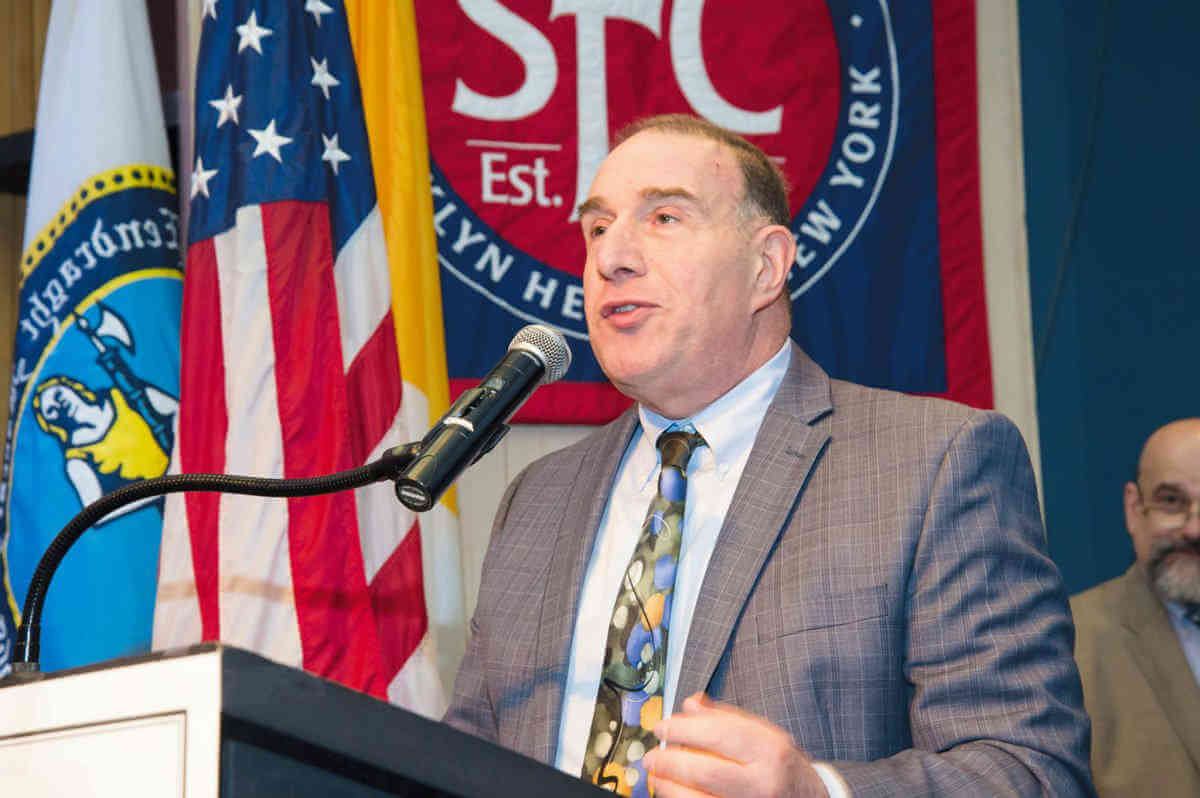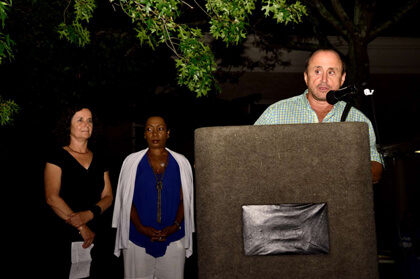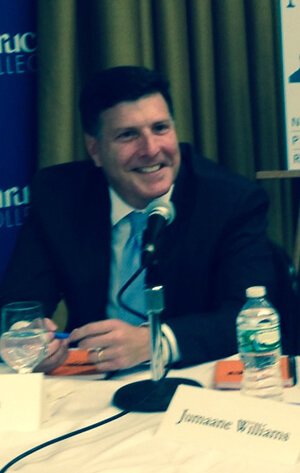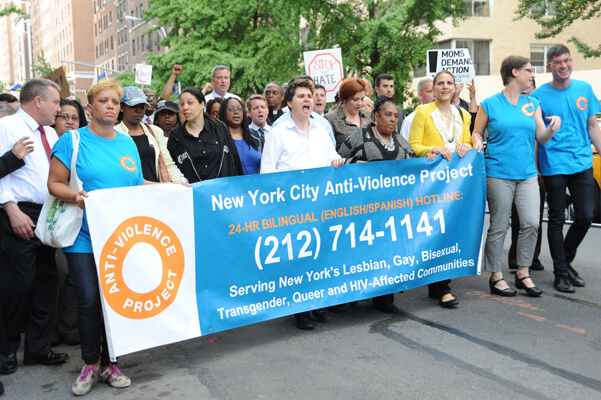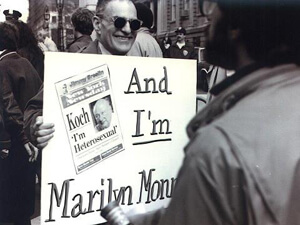Following a five-year battle with cancer, Alan Fleishman, a political organizer and Democrat who was central to building the LGBTQ community’s political power in New York City, passed away on August 27. He was 62.
“He is my good friend, my lifelong friend,” said Scott Klein, who worked in Brooklyn Democratic politics for decades with Fleishman. “We worked together on so many different campaigns… I really can’t imagine what my life will be like without him.”
Born and raised in Brooklyn’s Canarsie neighborhood, Fleishman was a DJ for many years before he engaged in politics and eventually went to work in the city comptroller’s office, where he served from 1990 until he retired in 2013. Klein and Fleishman were involved in Gay Friends & Neighbors, a group in Brooklyn that met for dinners, watching videos, and similar events.
“It was social group, but Alan became very political through that group,” Klein said. “At its peak, there were 300 people meeting every Monday night.”
Fleishman, who for many years lived in Park Slope, was the president of the Lambda Independent Democrats (LID), a Brooklyn LGBTQ political club founded in 1978, from 1988 to 1990. He was a delegate at the Democratic Party’s conventions in 1996 and 2000. In 2002, he became the first out gay Democratic district leader elected in Brooklyn and he held that position until 2010.
“At the time when many Brooklyn elected officials remained opposed to LGBT rights, his steadfast leadership drove LID’s mission to elect allies to office,” LID said in a statement. “His legendary work shows today, as very few Brooklyn elected officials remain opposed to LGBT rights.”
In a 2018 column in Gay City News, Allen Roskoff, president of the Jim Owles Liberal Democratic Club, an LGBTQ political group, called Fleishman the “smartest political gay in Brooklyn” and “dogged and well informed.”
Fleishman’s political organizing in Brooklyn was important in passing legislation in the City Council in 1986 that added sexual orientation to New York City’s human rights law. First introduced in the City Council in 1971, the legislation was kept from a vote by Thomas Cuite, that body’s majority leader and a conservative Democrat who represented Windsor Terrace and Park Slope among several Brooklyn neighborhoods.
In 1982, after city elections were delayed by a year due to a lawsuit that sought to overturn the structure of city government, Steve DiBrienza, a lawyer, challenged Cuite in a district that was transforming from one that was predominantly conservative Irish and Italian to one that was more liberal with a sizable LGBTQ voting bloc. While DiBrienza lost in 1982, Cuite — who died in 1987 — saw the writing on the wall and retired in 1985. DiBrienza won the seat that year.
“One of the big events in Brooklyn certainly was the election of Steve DiBrienza,” said Klein who also headed LID for a time. “When Steve was elected, it was the beginning of the old guard leaving.”
Andy Humm, who is a contributor to Gay City News and was in the leadership of the Coalition for Lesbian and Gay Rights, the group that won passage of the anti-discrimination legislation in 1986, said that Fleishman played a central role in that event.
“He was part of the movement that was organizing clubs in Brooklyn,” Humm said. “Brooklyn produced a lot of votes and Alan certainly played a key role in that.”
Fleishman was a consistent progressive and a reformer. He was an early endorser of Jesse Jackson’s 1988 campaign for the Democratic nomination for president and of David Dinkins in his successful mayoral race in 1989. Fleishman was not above criticizing his fellow Democrats, sometimes with humor.
In 2010, Harold Ford, a Democrat who represented a Memphis district in the House for five terms beginning in 1997, had moved to New York City and was considering opposing Democrat Kirsten Gillibrand for her US Senate seat. Ford’s two votes supporting an amendment to the US Constitution that would define marriage as between a man and a woman made him decidedly unpopular among LGBTQ voters. At a Ford town hall held at the Lesbian, Gay, Bisexual & Transgender Community Center, Fleishman told Gay City News that he had never seen Ford at political events or “the kind of horrible things candidates have to do if they want to meet the loyalists.”
Fleishman could also be biting in his critiques. In 2005, Brian Ellner, a gay Democrat, endorsed Republican Michael Bloomberg in his re-election campaign for New York City’s mayor and went to work for that campaign and the Bloomberg administration later.
“It’s dismaying that there’s no party loyalty left in a Democratic town like New York,” Fleishman said then. “I don’t look favorably on anyone endorsing Republicans… [but] that’s a problem we have in the party here in the city. There’s no discipline among Democrats. I also understand that people need to work and to feed themselves, but that’s no excuse. But clearly they have plenty of cover from other Democratic elected officials and Democrats working for the mayor.”
Fleishman’s advocacy has left behind many concrete achievements and a great deal of good will.
“He was incredibly brave and fearless in his support for the candidates and the issues he believed in,” said Jo Anne Simon, a Democrat who represents several Brooklyn neighborhoods in the State Assembly, in the LID statement. “Horace Mann once said that we should ‘be ashamed to die until we have won some victory for humanity.’ If victories for humanity is the measure of a life well-lived, Alan Fleishman lived exceedingly well.”
Fleishman is survived by his mother, Sally, a brother, Sheldon, his sister, Beth, two nephews and a niece, and many friends.

